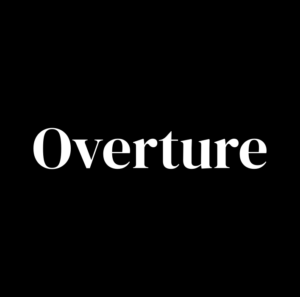Why Senior In-House Lawyers Make Great Corporate Directors
In-house lawyer skill sets are directly transferable to the boardroom.
 Senior in-house lawyers are increasingly recognized as invaluable assets for board roles in the evolving corporate governance landscape. Their unique skill sets, honed through years of navigating complex legal terrains, equip them to enhance boardroom dynamics and corporate decision-making. Here are seven compelling reasons why these seasoned legal professionals make exceptional corporate directors:
Senior in-house lawyers are increasingly recognized as invaluable assets for board roles in the evolving corporate governance landscape. Their unique skill sets, honed through years of navigating complex legal terrains, equip them to enhance boardroom dynamics and corporate decision-making. Here are seven compelling reasons why these seasoned legal professionals make exceptional corporate directors:
- Regulatory Mastery
In-house lawyers have an acute understanding of the regulatory environments that impact their industries. This expertise is crucial for boards, especially in sectors that face heavy regulatory scrutiny, ensuring compliance and foreseeing regulatory changes that could affect the company.

Trust The Process: How To Build And Manage Workflows In Law Firms
- Risk Management Proficiency
Experienced in assessing risks, in-house lawyers bring a proactive approach to identifying and mitigating potential legal and business risks at the board level. Their ability to foresee possible challenges is invaluable in crafting strategic decisions that minimize risk.
- Ethical Leadership
Senior in-house lawyers often serve as the ethical compass of their companies, making them ideal candidates for promoting and upholding strong corporate governance practices that enhance a company’s reputation and accountability.
Sponsored

Raising The Bar in Bar Prep

Trust The Process: How To Build And Manage Workflows In Law Firms

How Savvy Lawyers Build Their Law Firm Rate Sheet

Raising The Bar in Bar Prep
- Strategic Thinking
Trained to think critically and strategically, in-house lawyers can dissect complex issues and contribute to developing long-term strategies that balance legal considerations with business objectives.
- Crisis Management
Having typically managed crises during their careers, these lawyers are well-prepared for calm decision-making under pressure, an indispensable trait for any board, especially in corporate or economic distress.
- Effective Communication
Sponsored

Referral Fees The Key To Growing A Modern Practice? Overture Thinks So.

Law Firms Now Have A Choice In Their Document Comparison Software
In-house lawyers excel in articulating legal concepts in understandable terms for nonlawyers. This skill is essential in the boardroom, where clarity in communication can drive better-informed decisions.
- Stakeholder Engagement
They are adept at liaising with various stakeholders, including regulators, shareholders, and employees, making them well-equipped to help guide company policies that consider and balance the interests of all parties involved.
5 Business Skills Of In-House Lawyers
Beyond their legal acumen, in-house lawyers develop a suite of business skills that are directly transferable to the boardroom:
- Industry Knowledge. Deep insights into their industries’ specific challenges, opportunities, and competitive landscapes.
- Financial Acumen. Understanding financial statements, budgeting, and financial planning is critical for strategic oversight.
- Change Management. Skills in managing change across organizations, vital for guiding companies through transitions and transformations.
- Technology Savvy. Understanding the impact of technology on business strategy and operations is especially important for those in tech-heavy industries.
- Team Leadership. Experience leading diverse teams, fostering collaboration, and driving collective success.
5 Strategies To Land A Corporate Board Seat
For in-house lawyers aiming to transition to board roles, the following strategies can pave the way:
- Network Strategically. Build relationships with current board members, industry leaders, and executive recruiters specializing in board placements.
- Pursue Board Education. Complete certification programs that teach governance fundamentals and enhance boardroom readiness.
- Promote Your Personal Brand. Articulate your unique value proposition and visibility through speaking engagements, articles, and professional social media presence.
- Understand Board Needs. Research boards to understand their challenges and opportunities, positioning yourself as a solution to their needs.
- Seek Internal Opportunities. If possible, aim for roles within your current organization that provide exposure to the board, such as presenting at board meetings or working on board-level projects.
By embracing these strategies and emphasizing their specialized skills, senior in-house lawyers can effectively navigate the path to securing a seat in the boardroom, where their unique perspectives can drive substantial value for organizations.
 Olga V. Mack is a Fellow at CodeX, The Stanford Center for Legal Informatics, and a Generative AI Editor at law.MIT. Olga embraces legal innovation and had dedicated her career to improving and shaping the future of law. She is convinced that the legal profession will emerge even stronger, more resilient, and more inclusive than before by embracing technology. Olga is also an award-winning general counsel, operations professional, startup advisor, public speaker, adjunct professor, and entrepreneur. She authored Get on Board: Earning Your Ticket to a Corporate Board Seat, Fundamentals of Smart Contract Security, and Blockchain Value: Transforming Business Models, Society, and Communities. She is working on three books: Visual IQ for Lawyers (ABA 2024), The Rise of Product Lawyers: An Analytical Framework to Systematically Advise Your Clients Throughout the Product Lifecycle (Globe Law and Business 2024), and Legal Operations in the Age of AI and Data (Globe Law and Business 2024). You can follow Olga on LinkedIn and Twitter @olgavmack.
Olga V. Mack is a Fellow at CodeX, The Stanford Center for Legal Informatics, and a Generative AI Editor at law.MIT. Olga embraces legal innovation and had dedicated her career to improving and shaping the future of law. She is convinced that the legal profession will emerge even stronger, more resilient, and more inclusive than before by embracing technology. Olga is also an award-winning general counsel, operations professional, startup advisor, public speaker, adjunct professor, and entrepreneur. She authored Get on Board: Earning Your Ticket to a Corporate Board Seat, Fundamentals of Smart Contract Security, and Blockchain Value: Transforming Business Models, Society, and Communities. She is working on three books: Visual IQ for Lawyers (ABA 2024), The Rise of Product Lawyers: An Analytical Framework to Systematically Advise Your Clients Throughout the Product Lifecycle (Globe Law and Business 2024), and Legal Operations in the Age of AI and Data (Globe Law and Business 2024). You can follow Olga on LinkedIn and Twitter @olgavmack.







